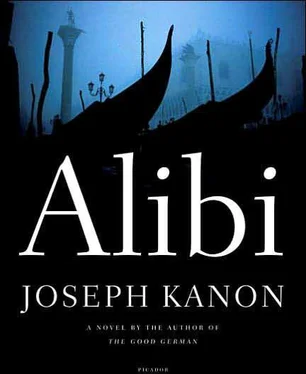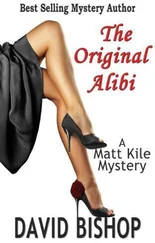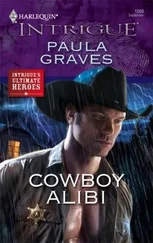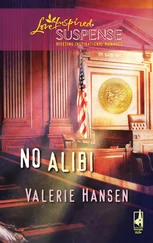Joseph Kanon - Alibi
Здесь есть возможность читать онлайн «Joseph Kanon - Alibi» весь текст электронной книги совершенно бесплатно (целиком полную версию без сокращений). В некоторых случаях можно слушать аудио, скачать через торрент в формате fb2 и присутствует краткое содержание. Жанр: Триллер, на английском языке. Описание произведения, (предисловие) а так же отзывы посетителей доступны на портале библиотеки ЛибКат.
- Название:Alibi
- Автор:
- Жанр:
- Год:неизвестен
- ISBN:нет данных
- Рейтинг книги:3 / 5. Голосов: 1
-
Избранное:Добавить в избранное
- Отзывы:
-
Ваша оценка:
- 60
- 1
- 2
- 3
- 4
- 5
Alibi: краткое содержание, описание и аннотация
Предлагаем к чтению аннотацию, описание, краткое содержание или предисловие (зависит от того, что написал сам автор книги «Alibi»). Если вы не нашли необходимую информацию о книге — напишите в комментариях, мы постараемся отыскать её.
Alibi — читать онлайн бесплатно полную книгу (весь текст) целиком
Ниже представлен текст книги, разбитый по страницам. Система сохранения места последней прочитанной страницы, позволяет с удобством читать онлайн бесплатно книгу «Alibi», без необходимости каждый раз заново искать на чём Вы остановились. Поставьте закладку, и сможете в любой момент перейти на страницу, на которой закончили чтение.
Интервал:
Закладка:
“Which is your mother?”
“They didn’t meet till later. Look, Luca, before he became a priest.” A plump boy with a grin, years from piety. “I don’t know this one.” Standing next to Gianni.
“That’s my father,” I said.
“Oh.” She looked up at me. “Yes, I see it now. It’s strange, our parents together. Like the same family, but not the same.”
My father was squinting into the sun, but both of them were smiling. A day at the beach, a casual snapshot, no hint at all of anything to come, their lives twisted together.
“But where’s Paolo?”
“He was always taking the picture, I think,” she said, smiling. “No, here, the tennis one. My father didn’t like tennis, so maybe it was his turn with the camera.”
I took the picture out of the album and brought it nearer, looking at it closely. No hint here either-no Order of Rome, no politics, none of Bertie’s murk. He was standing against the net in tennis flannels and a white sweater with a chevron neck, his arm draped over the shoulder of another player, both of them holding their rackets at their hips.
“It’s sad to look at them,” Giulia said, moving away. “Everyone so happy. Does that make sense?”
I nodded. “What was he like?”
“Paolo? Uno vitaiolo. You know, always for the pleasure. Tennis. Those cars. Of course, when I was a child I thought this was wonderful. Another child, you know?”
“And then?”
“And then I wasn’t a child anymore.” She turned, facing me. “He was a Fascist. You’re surprised I say that? I know. Today, no Fascists. We were all in the resistance. I think we even believe it.”
“How do you mean, Fascist?”
“Fascist. He liked Mussolini. He liked the parades, dressing up, all of that. He was on committees-you know, they liked him because of his name. Of course no one listened to him, but it made him feel important to go to meetings. And after, the tennis. So not so serious-how could Paolo be serious? And then it’s the war, and everything’s serious. He’s too foolish to see what is happening to us, that it’s a catastrophe. He thinks the king will save us, make peace with the English king. Because he’s a king too. Imagine the foolishness of it. Well.”
“And after that?”
“After that, the Germans. And Paolo? He supports the Salo government, against the CLN, the partisans. It interests you, Italian politics?”
“It confuses me.”
“Yes,” she said. “But at the end it’s not difficult. If you’re with Salo, you’re with the Germans. So Paolo was too. Sometimes I think it was good that he died, before it was a disgrace to the family. Even for my father it was too much. Paolo was his brother, so that’s something sacred to him, but it wasn’t the same between them. The Germans, that’s something my father would never forgive.”
I looked over at her, expecting irony, but she seemed utterly sincere, guileless.
“They had a fight?”
“A distance. Maybe a fight, I don’t know. I was at school. And of course I wouldn’t speak to Paolo then. You know, the students, the way we felt-I was too angry with him. Maybe ashamed, too. My own family. So I didn’t speak.” She came back to the desk and looked down at the picture. “And then after he died, I remembered him like this. When he was so nice. My father too, I think. So quiet, days like that. You know, whatever he did, still a brother.”
“What about your father, his politics?”
She smiled. “Was he this, was he that? Nothing-he wanted to survive them. That’s what he used to tell me. Stay out of it. Keep your head down. So of course we would quarrel. You know, at that age. He was afraid, I think, that I would get involved in the resistance. So many of the students-”
“Did you?”
“No. I wanted to, of course, everybody did, but in the end-I don’t know, a coward maybe. Too much a lady, my friend used to say, my mother’s daughter. So maybe she was right.”
“But not your father’s?”
“Oh, a little bit. I think secretly he admired the resistance too. But he was afraid of it. For him it was simple-the family, Venice. The Church-well, maybe that was for my mother. He believed in those things. And what was the resistance? Maybe a threat. Something else to survive. So he kept his head down. No sides.” She turned at a soft rap on the door, an even quieter opening. “Ah, Maria,” she said, “thank you.” Not surprised.
The maid, in a starched linen collar and apron, carried a coffee tray to the table in front of the reading chairs. The cups and pot lay on a white doily, also starched, as if it had been meant to match her uniform. Shy smiles and murmurs in Italian, part of the ceremony of getting the tray on the table.
“I’ll pour, shall I?” Giulia said, at once dismissing Maria and taking up the pot in her hand, poised, her mother’s daughter.
I sat on the other side of the low table. It was the funeral all over again, nothing extra, everything as it should be, sure of its own taste. Even her dress, I noticed, was suitable, black without any purple frills, a discreet mourning-mourning because I had held his head under. Now we were drinking coffee, polite.
“But it must have been hard in the war, not taking sides,” I said.
She took a sip, then held the cup in her hand, thinking. “Of course in the end you do. It’s your country. I didn’t have the courage, maybe, but I had money. So I helped with that. We were alike that way. Keep your head down, but do it anyway. No sides, but he helped the partisans.”
“He told you that?” Maybe as plausibly as he’d told it on the fondamenta, but why?
She shook her head, then smiled. “Well, I didn’t tell him about the money either. But I know. He made it a question of medical ethics-what’s the right thing to do? You know, they do this in the law school too. So it’s good training for me. But this is his way of telling me. A man is brought in with a gunshot wound, a man you know. The law says you must report all such wounds. But you know that the only way he could have been shot is in the fighting, a partisan. If you report it, the government will kill him. If you don’t, maybe it goes badly for you, for helping a traitor. The man begs you-‘Help me, don’t give me up.’ What do you do?”
“And what did he do?” I said quietly.
“We agreed that the first obligation must be to save the man.”
“Even if he’s a traitor.”
“But if the government itself is illegal-”
“And who decides that?”
“Yes, who? You see how it goes on? He liked these questions. Well, I liked them, so he would ask.”
“And how did it end, this one? What did he do?”
“Oh, he said you can make it complicated if you like, but the simple fact is, if you know a man, you can’t give him up. So I know he didn’t.”
I put down my cup. “What if you gave up someone else instead?”
“Someone else?”
“To save the first. Your friend. If you gave up someone in his place.”
She looked at me for a second, then down at her cup. “What makes you ask this?”
“It’s a question he once asked me.”
“And you think,” she said, stirring her cup, still not looking up, “this was his way of telling you something.”
For a minute we were quiet, still enough to hear the clock.
“Do you think he did that?” she said finally, sitting up straight, braced.
I hesitated, then sat back, moving away from it. “I think it was just a question.”
“It’s a terrible thing.”
“Yes.”
“Why would he ask that?”
“As a moral dilemma, maybe. An impossible choice.”
“But you can’t choose someone’s death.” She was looking at me now, her face longer, more severe, like her mother’s again. “That’s murder.” Sure, admitting no exceptions.
Читать дальшеИнтервал:
Закладка:
Похожие книги на «Alibi»
Представляем Вашему вниманию похожие книги на «Alibi» списком для выбора. Мы отобрали схожую по названию и смыслу литературу в надежде предоставить читателям больше вариантов отыскать новые, интересные, ещё непрочитанные произведения.
Обсуждение, отзывы о книге «Alibi» и просто собственные мнения читателей. Оставьте ваши комментарии, напишите, что Вы думаете о произведении, его смысле или главных героях. Укажите что конкретно понравилось, а что нет, и почему Вы так считаете.












